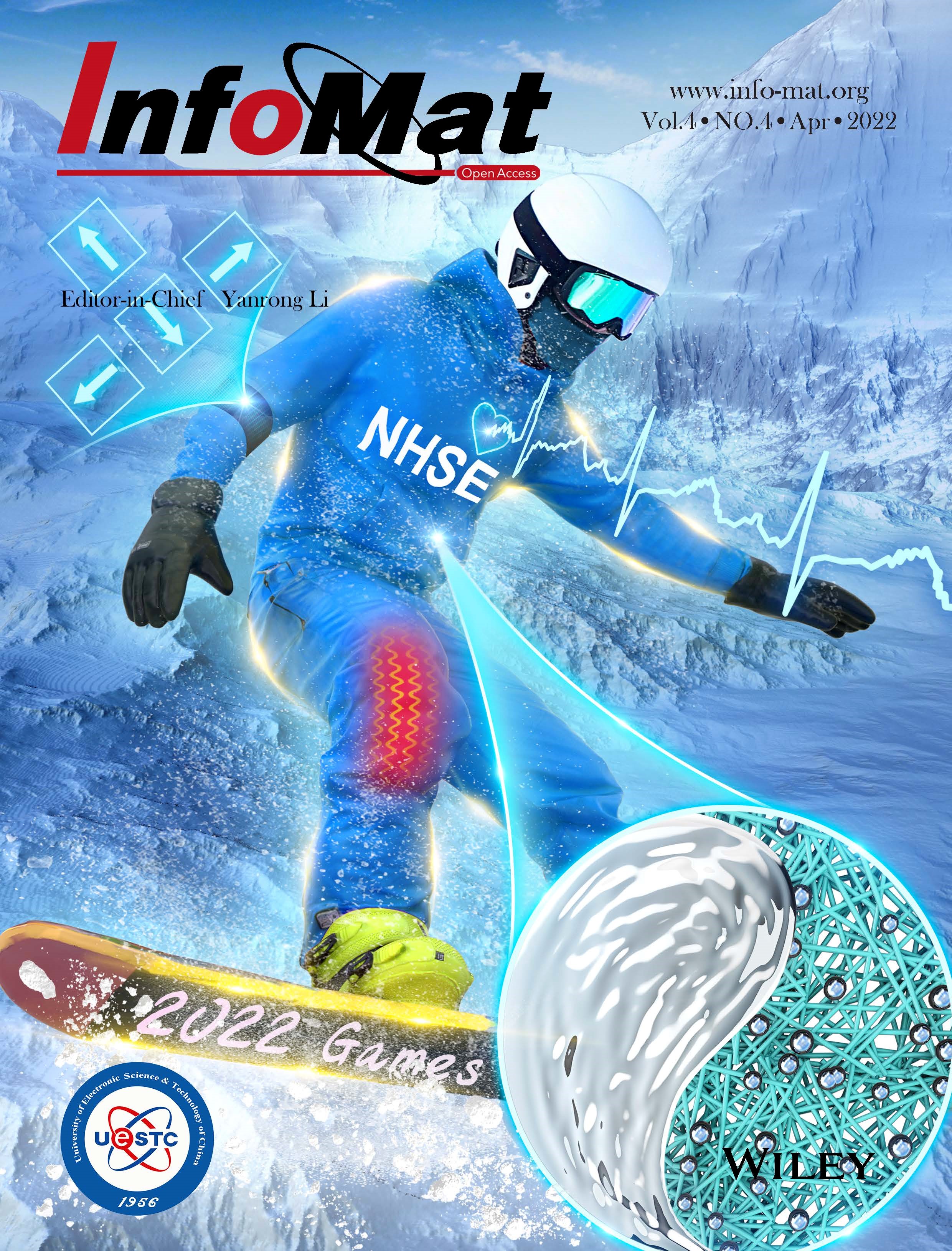Prof. LI Run-Wei’s group at the Ningbo Institute of Materials Technology and Engineering(NIMTE) of Chinese Academy of Sciences (CAS), cooperating with Prof. ZHU Guang’s group from University of Nottingham Ningbo China (UNNC), have developed a nano-liquid-metal-based highly robust stretchable electrode (NHSE) for multiple electronic skin (e-skin) applications, such as human healthcare monitoring and human-machine interaction. The findings were published in InfoMat as cover article.
Wearable electronics have drawn tremendous attention among consumers for realizing human-machine interface, smart medicine, and artificial intelligence. Stretchable electrodes are of paramount significance for the development of wearable electronics, especially in the stable collection of human electrophysiological signals. However, it remains challenging to prepare electrodes with superior conductivity, stretchability and durability, which palys a vital role in realizing precise and stable physiological signal collection in complex environments.
The researchers from NIMTE and UNNCA observed that a continuous and deformable water membrane can be formed when the fishing net is pulled out of the sea. Inspired by the fishing net, NHSE was developed via the in situ assembly of electrospun elastic nanofiber scaffolds and electrosprayed liquid metal (LM) nanoparticles.
Mimicking the water-to-net interface, the self-adaptable interface between the LM and the nanofiber scaffolds contributed to a super-low resistance 52 mΩ sq-1 under high elongation.
In addition, the electrical resistance of NHSE is insensitive to a large degree of mechanical stretching, and remains stable despite cyclic deformation with only 5% electrical resistance increase after 330 000 stretching cycles under 100% elongation.
Moreover, the NHSE delivers superior robustness under various dynamic conditions, like heating, acid and alkali exposure, as well as submersing.
Thanks to the combination of conductivity, stretchability and durability, the developed NHSE shows great potential in the application of flexible/stretchable electronics, such as wearable devices for long-term electrocardiography (ECG) monitoring, electrothermal heater, and wearable human–machine interface system, thus facilitating the development of Internet of Things (IoT)-based wearable healthcare monitoring systems and skin-like human–machine interfaces.
The study was supported by the Ningbo Municipal 3315 Talent Scheme and Ningbo Scientific and Technological Innovation 2025 Major Project (Grant No. 2018B10057) by Ningbo Science and Technology Bureau, the Zhejiang Provincial Natural Science Foundation of China (Grant No. LR19F010001), the National Key R&D Project from Ministry of Science and Technology, China (Grant Nos. 2016YFA0202703), National Natural Science Foundation of China (Grant Nos. 51525103, 51701231 and 51931011).

Fig. The nano-LM-based highly robust stretchable electrode (NHSE) for E-skin Applications (Image by NIMTE)
Contact
CAO Jinwei
University of Nottingham Ningbo China & Ningbo Institute of Materials Technology and Engineering
Email: Jinwei.Cao@nottingham.edu.cn
caojinwei@nimte.ac.cn

